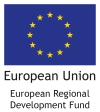It is important to see the difference between the project objectives and communication objectives, and that no matter what type of a project you are running, communication must always be planned and done well.
For some projects communication is very closely related to the main project aims and for some not. For instance, in a project aiming at raising awareness about a certain minority group to improve their inclusion in the society, the project as such is very much about communication. On the contrary, for a project developing small harbours with investments the main activities are not as closely related to communication. Yet, both projects will in practice fail if communication is not done well. The first project will not reach any of its aims and the latter will maybe get the investments done but as people don’t know about them, all the work and money is wasted.
In order to know what to do, be clear about your communication objectives. What do you want to achieve by communication and why? Whom do you want to address? When is the best time to catch their attention – with what methods? It is also good to think of how you can evaluate the outcome of your communication afterwards.
Target groups can be easily identified by developing a list of important people and organisations that you want to know about your project and its work. Be sure to include all partners in this brainstorming exercise!
After listing the relevant groups of people, put yourself in the shoes of each target group:
What does this group need to know and want to hear? What should I get them to do (e.g. change their attitude, participate in an activity, promote a change in legislation)? How should it be formulated (e.g. friendly, demanding, official, fun, provoking, short and catchy or well elaborated and in-depth)?
For some projects communication is very closely related to the main project aims and for some not. For instance, in a project aiming at raising awareness about a certain minority group to improve their inclusion in the society, the project as such is very much about communication. On the contrary, for a project developing small harbours with investments the main activities are not as closely related to communication. Yet, both projects will in practice fail if communication is not done well. The first project will not reach any of its aims and the latter will maybe get the investments done but as people don’t know about them, all the work and money is wasted.
In order to know what to do, be clear about your communication objectives. What do you want to achieve by communication and why? Whom do you want to address? When is the best time to catch their attention – with what methods? It is also good to think of how you can evaluate the outcome of your communication afterwards.
Target groups can be easily identified by developing a list of important people and organisations that you want to know about your project and its work. Be sure to include all partners in this brainstorming exercise!
After listing the relevant groups of people, put yourself in the shoes of each target group:
What does this group need to know and want to hear? What should I get them to do (e.g. change their attitude, participate in an activity, promote a change in legislation)? How should it be formulated (e.g. friendly, demanding, official, fun, provoking, short and catchy or well elaborated and in-depth)?
- What would be the best way to reach them (e.g. phone call, newsletter, visit, organising an event, doing a presentation, social media update)?
- What will stop them listening to what you have to say (e.g. writing a too long or difficult message, being too official, not being able to show that you know who you are talking to)?
- How will you know that they have got the message (e.g. they register to an event, take part in a discussion, reply to a questionnaire)?


